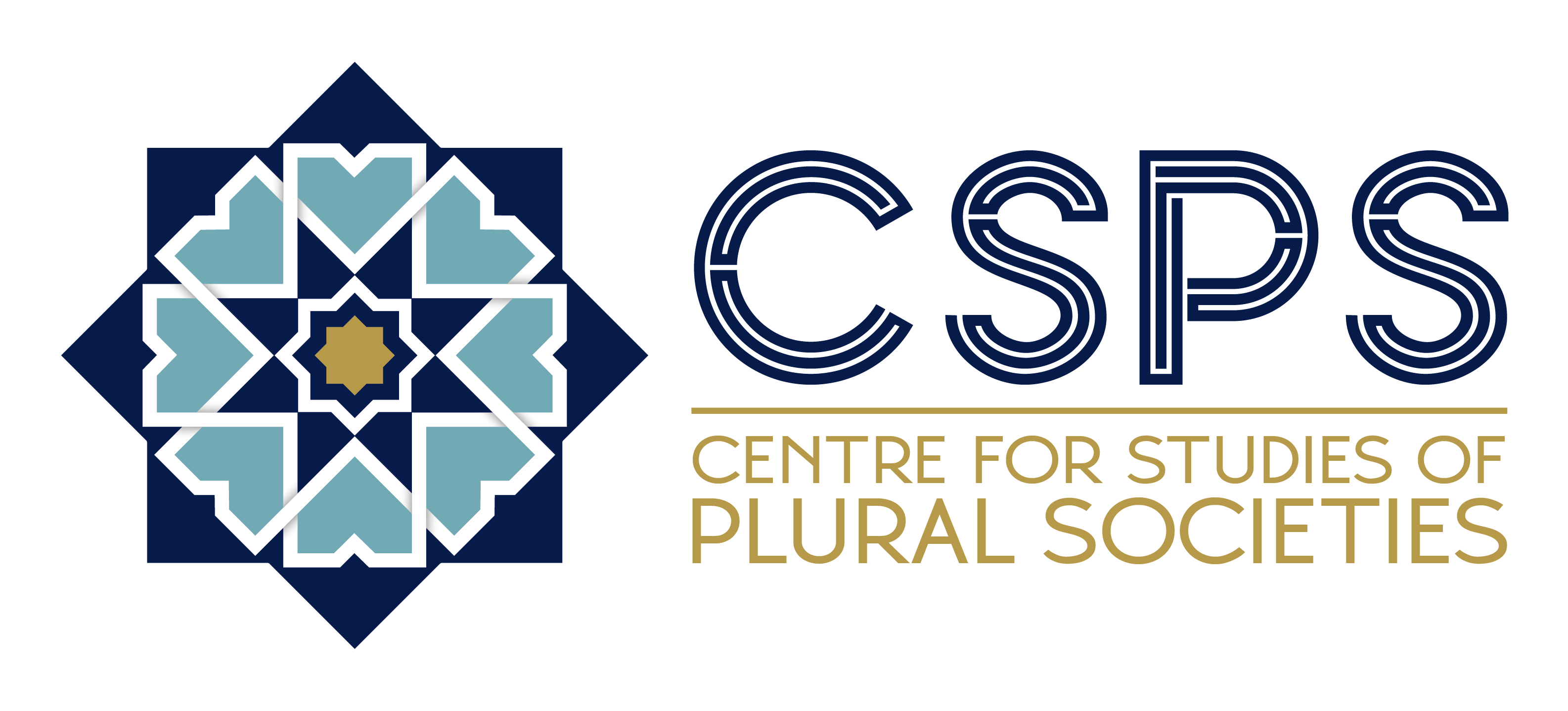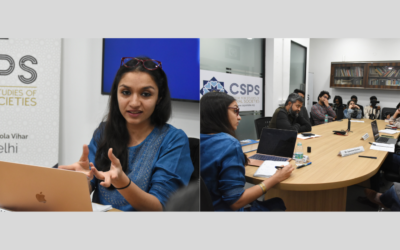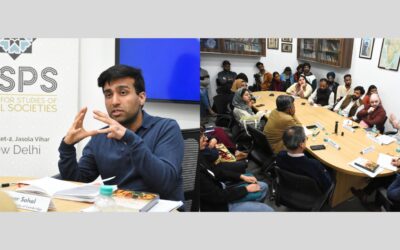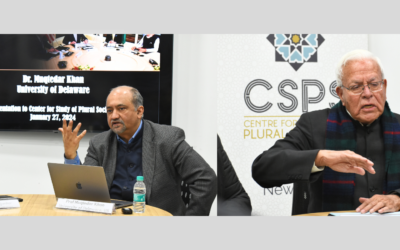The Centre for Studies of Plural Societies (CSPS) organized an Academic Writing Workshop on Writing a Research Proposal by Md. Zubeer Ahmed, Assistant Professor of Political Science, Janki Devi Memorial College, University of Delhi, on 18th January 2022, 4:00 PM IST.
Dr Ahmed began with the concept of what a research proposal essentially entails- it is a brief outline of one’s work and has to be convincing and intensely researched enough to be worked on. Prospective researchers should begin by selecting a broad area of research. Dr Ahmed stressed that one must always reciprocate the ideas in the brain on pen and paper and form a gist in about one-two page.
The next step entails preparing a bibliography which counts for a direct reading list about the broad area one wants to work on. This bibliography should include all primary and secondary sources and a potential supervisor’s works if possible. This is also the best opportunity to know about the existing and available literature on the broad topic of interest.
There should always be a particular research style- MLA, APA, Chicago or the manual that universities have for researchers while preparing a research proposal.
Prof. Ahmed stressed strongly on research principles- to not compromise on the ethics and ideals of one’s research work. Plagiarism in academia is next to sin and should be avoided at all costs, he said. Whenever borrowing from a not our source, we must cite and quote the author’s ideas. Under-citing is not an excuse for an aspiring researcher.
The next step entails meeting with the potential supervisor or guide. Dr Ahmed advised that meeting the guide after preparation on a topic is a better choice since it shows one’s sincerity, preparedness, and seriousness towards the research. One is also prepared for an interview or to answer questions their guide might have.
Dr Ahmed gave the participants two examples from extensively researched and well-detailed abstracts and a synopsis on how to write the proposals. He mentioned that the proposal is a space to show our guides the basic ideas of the research topic. Hence, it is essential not to make any grammatical errors or spelling mistakes and provide and put forth a clear conception of ideas in the proposal. He also included that one must edit and add to the proposal and not write it at one go and make changes over time to fine-tune the entire writing.
The abstract shown by Prof. Ahmed included the following components:
- Title Page – One should usually follow the format given by their respective universities or the institution they want to apply to. The best way to find out the university model is to go to the library or look up the previously submitted dissertations in the university.
- Introduction- Writing an introduction for the synopsis is essential as it is the space to introduce one’s research effectively within one-two page or as per the university’s need.
- Keywords- Five to six essential keywords should be mentioned. These keywords give an idea of the crucial aspects one shall cover during their dissertation.
- Literature Review- One must consider all of the sources (primary and secondary) they want to use in the dissertation and briefly explain their importance in the research. One way to divide the review is to thematically divide one’s paper into sections and include the same-themed sources together under the Review section. One must always follow in-text citation, for example ( Author surname 18) when quoting from any source’s page or, for example write “ Author surname (1992) talks about…..in their book/article” while quoting the entire source in this section.
- Research Question/s- select and address possible research questions pertinent to the broad topic.
- Hypothesis- Provide a statement one has presumed for research. One can include up to three hypothetical research statements in their paper. The rationale is significant as it gives one the space to state their purpose on why they will be working on this project.
- Research Methods- Include any pertinent modes of research that one wishes to use in the project- empirical, survey etc. Also include the sources associated with the methods.
- Tentative Chapters- One should then include tentative chapters in their proposal, including the introduction and the conclusion, add three-four core chapters inside, and give a brief description of the chapters.
- Bibliography- Provide a detailed bibliography of all the works one wishes to use in the research project. Including the bibliography at the end of an any abstract proposal is vital.
According to UGC guidelines on submission, Prof. Ahmed also showed an example of a similarly detailed research project synopsis of a UGC sponsored journal. He stressed the importance of the systematic outline a student needs to undertake upon research and carefully selecting their research topic, thereby also taking care to be ethical and not plagiarise their work. The session was concluded with Prof. Ahmed responding to questions about how to prepare for research and the issues of subjective answer writing by the participants and interns.
The report is prepared by CSPS Research Intern, Arna Dirghangi (Presidency University)




